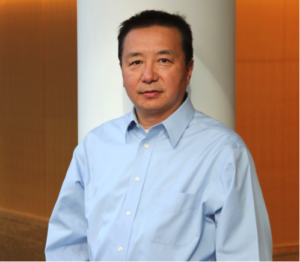
Treatment-resistant breast cancer could be made vulnerable to immunotherapy by flipping a metabolic “switch,” according to a Northwestern Medicine study published in Cancer Discovery.
This strategy could represent a breakthrough in treating tumors that otherwise don’t respond to cancer immunotherapy, according to Yong Wan, PhD, professor of Obstetrics and Gynecology in the Division of Reproductive Science in Medicine and senior author of the study.
“This model could be very attractive for treating triple-negative breast cancer,” said Wan, who is also a professor of Pharmacology and a member of the Robert H. Lurie Comprehensive Cancer Center of Northwestern University.
Xinxin Song, MD, PhD, and Zhuan Zhou, PhD, were co-first authors of the paper.
Immunotherapy is a form of cancer treatment that inhibits immune regulators that normally keep the body’s T-cells in check. In healthy patients, these regulators prevent the immune system from becoming overactive and attacking healthy cells. For patients with cancer, triggering this highly-charged immune response can actually help, unleashing those T-cells to attack cancer.
However, some cancers locally inhibit immune activity in order to grow, rendering immunotherapy useless, according to Wan.
“These ‘immune-cold’ tumors have no response to immunotherapy,” Wan said. “Immunotherapy is important, but we’ve hit a bottleneck.”
In the current study, Wan and his collaborators analyzed protein levels in 81 patients with triple-negative breast cancer, a form of breast cancer that does not respond to most therapies. They found that high levels of an immune-dampening protein called B7-H4 correlated with worsening disease progression and resistance to immunotherapy.
“This protein is very involved in ‘don’t eat me’ immune signaling,” Wan said. “This behavior suggests it could be a good target.”
Searching for ways to modulate the protein, the investigators explored its regulation, finding a push and pull between two different metabolic compounds. One form of regulation, ubiquitination, degrades the protein, while another form, glycosylation, stabilizes and protects the protein.
“We want to degrade the protein, so inhibition of glycosylation might have a clinical use,” Wan said.
Accordingly, the investigators tested a glycosylation inhibitor in mouse models of triple-negative breast cancer, combining it with immunotherapy to simulate how it might be used in patients. They found that it effectively turned this form of cancer into an “immune-hot” tumor, and the efficacy of the immunotherapy soared compared to control models who did not receive the inhibitor.
“It had a fantastic mechanistic effect,” Wan said.
In the future, Wan plans to develop screens that use B7-H4 as a biomarker of immunotherapy resistance in cancer. In addition, while Wan said he hopes to develop a more specific inhibitor, this two-part process could nonetheless make immunotherapy a real treatment option both for triple-negative breast cancer and for other cancers that rely on B7-H4.
“We’ve also seen it in ovarian cancer and lung cancer, so this could be a great way to turn these immune-cold tumors into immune-hot ones,” Wan said.
The Wan laboratory is supported by the Northwestern University Zell scholar fund and the National Institutes of Health grants R01CA202963, R01CA202948 and R01CA250110.






